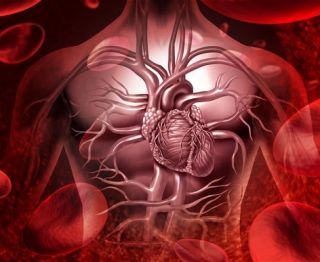Stress
The Life Threatening Toll of Stress
Stress triggers chronic inflammation linked to stroke and heart disease.
Posted May 18, 2013


The World Health Organization estimates that by 2020 heart disease and depression will be the number one and number two leading causes of disability in developed countries. Stress is the culprit for understanding the link between depression and heart disease. Depression is the leading cause of disability with more than 350 million people globally affected by this disease. In addition to the debilitating consequences for mental health, depression predisposes an individual to stroke and heart disease.
Your immune system combats stress as if it were a disease or infection. In response to stress, your immune system produces stress hormones like cortisol and proteins called cytokines like interleukin-6.
Stress + Interleukin-6 = Chronic Inflammation
Interleukin-6 has been strongly associated with cardiovascular disease. Initially, the inflammatory response of interleukin-6 serves to protect against the perils of stress. But over time, the chronic low-grade inflammatory response can lead to arteriosclerosis (hardening of the arteries) and cardiovascular disease.
A Loyola University Medical Center psychiatrist, Angelos Halaris, MD, PhD, wants to begin a subspecialty to diagnose and treat patients who suffer both depression and heart disease. He's calling it "Psychocardiology." A depressed patient's physicians and psychiatrist often work without communicating with one another; psychiatrists focus on treating depression and cardiologists focus on treating cardiovascular disease. Halaris is proposing that psychiatrists and cardiologists work together in a multidisciplinary "Psychocardiology" subspecialty.
Halaris and his colleagues recently discovered that the inflammatory biomarker, interleukin-6, was significantly higher in the blood of 48 patients diagnosed with major depression than it was in 20 healthy controls. “40 to 60 percent of heart disease patients suffer clinical depression and 30 to 50 percent of patients who suffer clinical depression are at risk of developing cardiovascular disease,” Halaris said.
It is a vicious cycle: depression triggers chronic inflammation, which leads to heart disease, which causes depression . . . which leads to more heart disease. Clinical depression typically begins in young adults but can strike anytime in a person’s life. A study released on May 16, 2013 found that middle-age women who suffer depression are almost twice as likely to suffer a stroke compared to those who weren’t depressed.
"Treating depression expertly and vigorously in young age can help prevent cardiovascular disease later on," Halaris said. Adding, “a Psychocardiology subspecialty would raise awareness among physicians and the public. It would forge closer working relationships between psychiatrists and cardiologists. It would formalize multidisciplinary teams with the requisite training and expertise to enable early detection of cardiovascular disease risk in psychiatric patients and psychiatric problems in heart disease patients. And it would provide continuing education to physicians in the safe and correct use of medications in cardiac patients who have psychiatric disorders.”
Conclusion: A Multi-Pronged Approach to Combating Stress
As with any vicious cycle—you can be proactive in tackling a single factor in the cycle and reverse it to create an 'upward spiral.' Taking measures to reduce stress will lessen the likelihood of depression, which will reduce inflammation and the risk of heart disease and stroke. For practical tips on reducing stress and improving heart health you can check out some of my previous Psychology Today blogs including: The Neurochemicals of Happiness, Cortisol: Why the Stress Hormone is Public Enemy No. 1, Mindfulness Made Simple, New Rules for a Healthy Heart, and Seven Habits for a Healthy Mind in a Healthy Body.
Angelos Halaris concludes, "It is only through the cohesive interaction of such multidisciplinary teams that we can succeed in unraveling the complex relationships among mental stress, inflammation, immune responses and depression, cardiovascular disease and stroke.” Each of us needs to take a multi-pronged approach to combating stress and protecting ourselves from the life threatening risks of chronic low-grade inflammation caused by interleukin-6.


